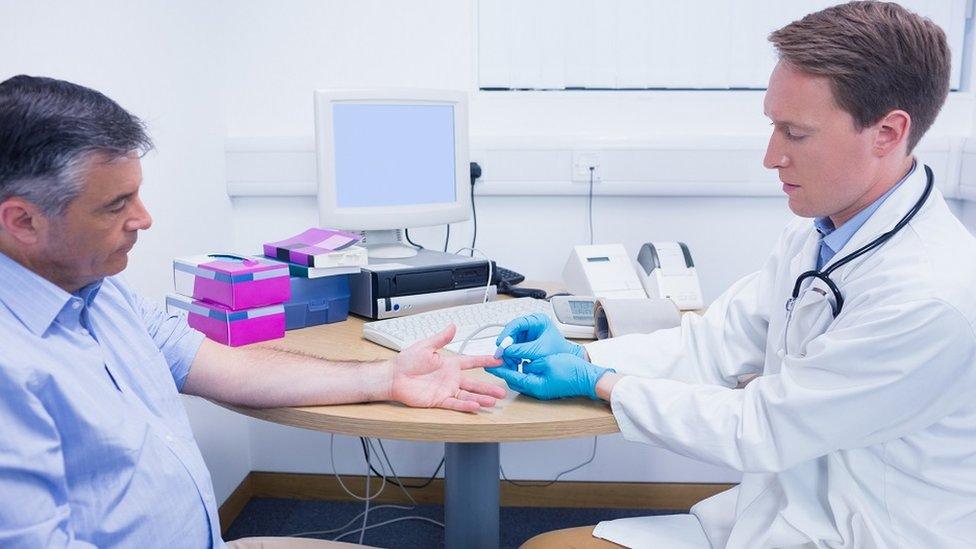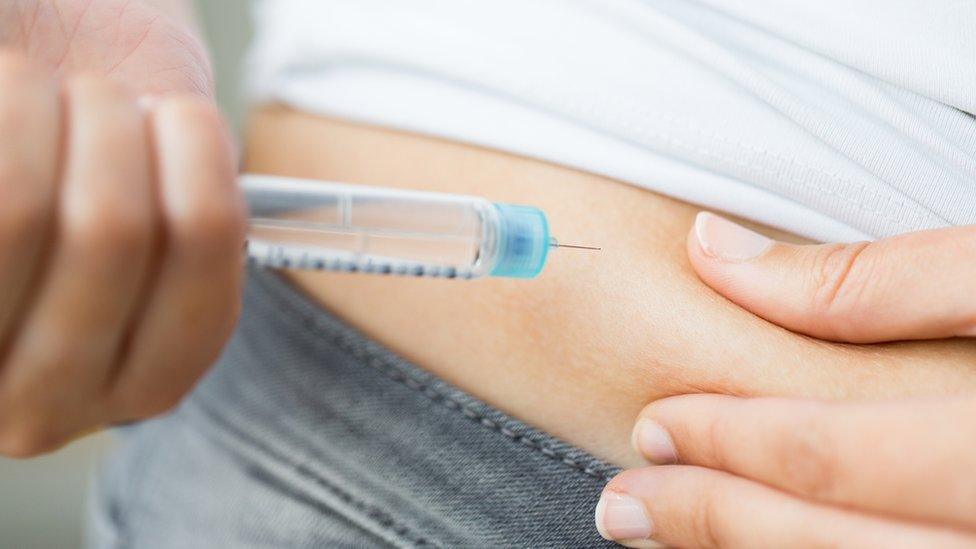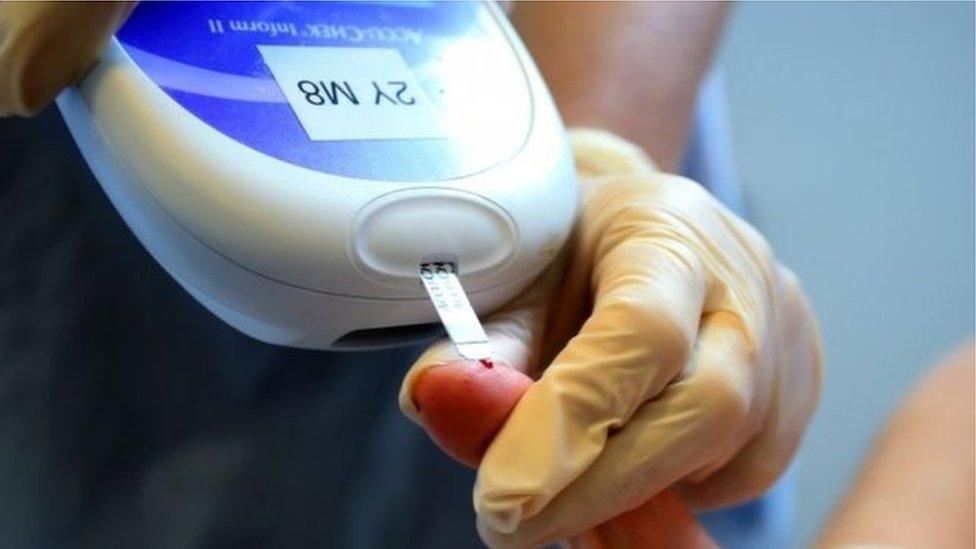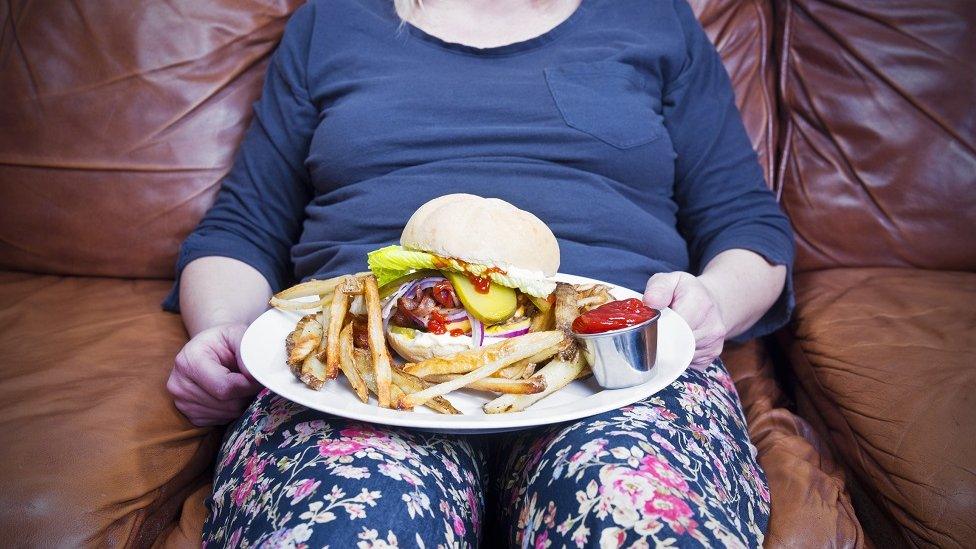Dieting type 2 diabetics 'can avoid move to insulin'
- Published

The NHS 16-week lifestyle programme included a regime of diet, exercise and behaviour change
Type 2 diabetics who lose weight through changes to diet and exercise are half as likely to progress to needing insulin than those who do not.
A study, led by the University of Glasgow, followed patients who took part in a 16-week NHS programme.
It also found those who lost 5kg or more did not need to increase their oral medication.
Those who did not lose weight needed more pills over the three years following the programme.
The study also found that patients who successfully completed the programme went on to maintain that greater weight loss over a three-year period than either those who did not complete the programme or those not referred on it.
In light of the findings, researchers believe that this kind of lifestyle programme may be even more effective than some pharmacological alternatives in treating type 2 diabetes.

The study examined records from the NHS 16-week lifestyle programme, which included a regime of diet, exercise and behaviour change.
The programme consists of nine fortnightly classes. Researchers defined "success" as losing 5kg in the nine-week timeframe.
Patients could then choose to stay on for further weight loss and maintenance classes (one per month) over the next year.
Patients with type 2 diabetes had to have a body mass index of 30 or above in order to qualify to be referred to the programme.
To judge whether the programme was a success, researchers compared the successful group against those who attended and did not lose weight, or those who did not complete, or those who were never referred.
'Long-lasting effect'
Dr Jennifer Logue, lead author of the study from the University of Glasgow, said: "This is the first real-world study to show that the lifestyle weight management programmes that we deliver in the NHS can have a long-lasting meaningful clinical effect on type 2 diabetes.
"This study shows that the common assumption that the weight lost is quickly regained is not true.
"Currently, weight management programmes in the NHS are under-resourced and there is a lack of belief in their effectiveness by clinicians leading to low levels of referral, despite them being recommended by NICE (the National Institute for Health and Care Excellence).
"Our hope is that this study will convince patients, clinicians and NHS managers that these inexpensive programmes can make a clinically-significant difference to patients with type 2 diabetes."
Only a minority of those who attended the programme achieved the "success" weight loss of 5kg.
The researchers believe these kinds of programmes need to be better resourced.
The study is published in Diabetes Obesity and Metabolism, external.
- Published5 December 2017

- Published14 November 2017

- Published6 November 2017

- Published15 September 2017

- Published14 September 2017
